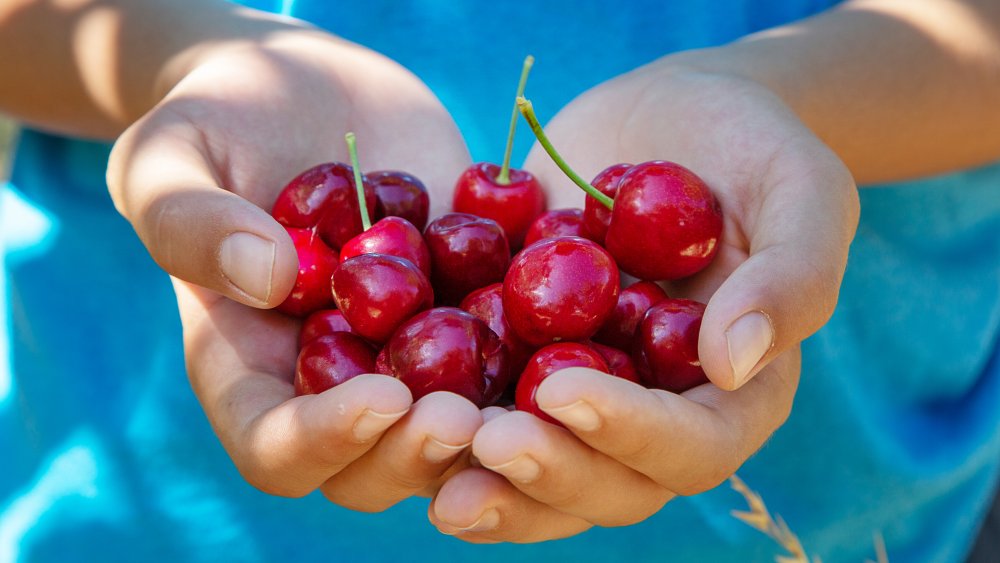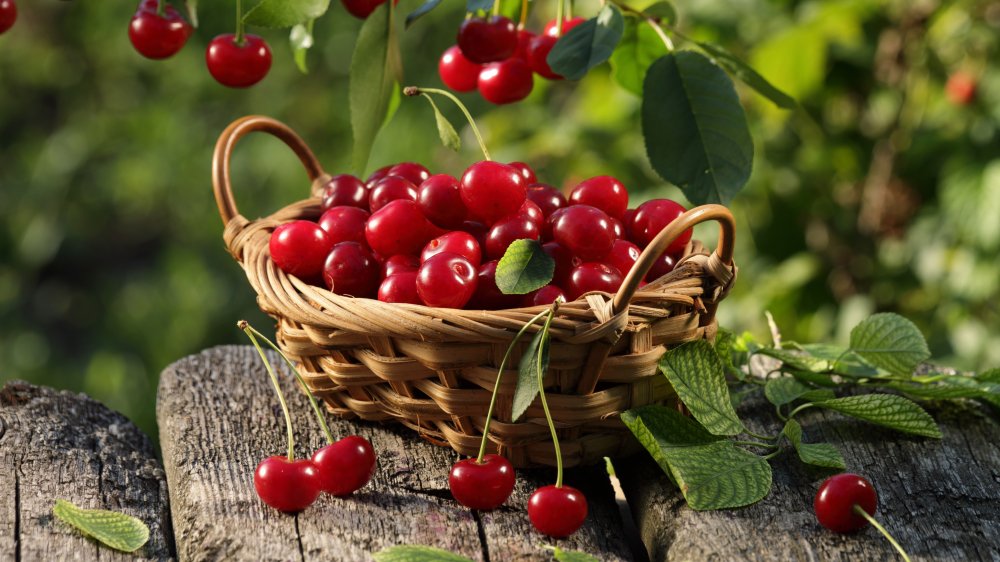The Real Reason You Should Stop Eating Cherries
No, the reason that you shouldn't be eating cherries has nothing to do with their pits. Nor does it have anything to do with their inordinately high price. It's actually all about their nutritional content — or lack thereof. They say the worst way to give someone bad news is to rip the bandage right off. Let's get right down to it, shall we?
First, cherries are high in sugar content — especially dried cherries. The Chicago Tribune reports that a cup of dried cherries contains 30 grams of sugar. A cup of fresh cherries? Nearly 20 grams. In comparison, Coca-Cola says that there are 39 grams of sugar in a 12 ounce can of Coke. Starbucks, meanwhile, reports that there are 11 grams of sugar in its cheese Danish (via Starbucks).
But, you'll undoubtedly protest, cherries are an excellent source of antioxidants, fiber, and folic acids (via BBC). True, but they can also make you bloated if you aren't able to digest them properly, or can even act as a laxative if you down too many (via EatingWell and LiveStrong). Here's the thing about cherries — their insoluble fiber content and naturally occurring sugar alcohols may increase the frequency and urgency of your bathroom visits. The moral of the story? Stay away from the fruit, especially if you struggle with digestive issues such as irritable bowel syndrome.
Even with all that said, we haven't even touched on the subject of worms.
The truth behind worms in cherries
Yes, worms.
The video that went viral on social media? The one that over 1 million people viewed in less than a week? The one with the small white worms wriggling happily in the middle of a bunch of mouthwatering, red, ripe cherries? It checks out (via Snopes). According to Iowa State University, the 1/4 inch white worms you might find in your cherries are probably cherry fruit fly larvae. Snopes will assure you that eating cherries with worms inside of them is probably not dangerous. Apparently, the larvae that burrow into cherries have not adapted to human intestines. That's comforting. But then again, baby flies aren't exactly a culinary delicacy.
If you don't find worms in your cherries, that may be due to the fact that the fruit is usually grown with plenty of pesticides. Time reports that cherries are among the top 12 fruits and vegetables grown with the most pesticides. In fact, about 98 percent of cherries contain at least one. And, in case you needed a reminder about why pesticides in foods are dangerous, The Center for Ecogentics and Environmental Health reports that the consumption of even low doses of pesticides is associated with everything from memory disorders and depression to respiratory problems and miscarriages. Organic cherries will help you in that department, but regardless, maybe consider eating them only on occasion and in moderation.

